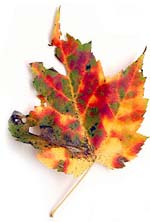History
Comparative History
History studies the past. But there is more than one past. Confining ourselves to one corner of the past misses the chance of seeing the larger picture. It also misses the chance of seeing the smaller picture whole. The pursuit of the larger picture is sometimes called Comparative History.
A Parable. If all you know is maple trees, your concept of "leaf" will be a maple leaf, a flat thing with a stem and pointy lobes. Then you meet an oak leaf. And you adjust your conception. A "leaf" in your mind is now a flat thing with lobes, not necessarily pointy. Then you encounter an elm leaf, and find that the lobes can be reduced to mere serrations. What about a willow leaf? A pine needle?
You do not know, repeat, you do not know, what a city-state is, or a law, or a revolution, or indirect sovereignty based on elite landholding, or divine kingship, until you have considered several specimens of the type. Studying possible cases of "the same" phenomenon, seeking their repeating elements, discovering their conditions of variation: this is comparative history. Comparative history is not currently in great shape. It was last heard from in 1950, trying to deal with the F-word. But in principle, comparative history is not only valid history, it is the only valid history.
History in one corner is already a lot of work. For history in more than one corner, cooperation will definitely be required. The prerequisite for cooperation is that there be a basis for communication: the representative from each corner should know enough of the rudiments of the other corners to be able to tell what the other person is talking about. And experts in one corner should be kind to any stranger from another corner, who comes hoping to establish a working relationship, or just to ask a question. Each of us has a duty to the others.
How shall one make contact with what is going on in cognate fields? Academe is ever more departmental, and conferences offer less and less help. But even within the present system, there are moments: casual encounters in the elevator, the parking lot, or the cafeteria. H G Crrel records this informal moment, when he was writing his 1974 book on the preserved fragments of the writings of the Chinese thinker Shvn Bu-hai:
"A very important contribution was made by my former colleague Professor Muhsin Mahdi. He is not only an outstanding authority on Islamic philosophy, but also a fully qualified political scientist. As I was struggling with the problem of Shen Pu-hai I discussed it with Muhsin, and he read the first draft of my translation of the fragments. At that time I considered Shen to be a very interesting administrative technician, but no more. Muhsin insisted that he was an important political philosopoher, and that I should investigate him as such. He was, of course, quite right."
.
5 Oct 2009 / Contact The Project / Exit to Method Home Page
